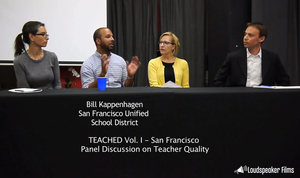by Kelly Amis
We were honored to be included as a trial exhibit in the historic Vergara v. Californiacourt case which, in essence, declared that the unique and powerful job protections that California's public school teachers have long enjoyed ultimately hurt the very kids who could most benefit from great teachers, especially low-income students and students of color, who 60 years later still have not received the equal education promised to them by Brown v. Board of Education. Read more about our small role in this hugely important case here.
In our short film, The Blame Game: Teachers Speak Out, several public school teachers explain these policies (tenure, seniority-based placements and "LIFO") and how they negatively impact students, good teachers and school systems alike. We have long needed a transformation of the teaching profession and Vergara could be the turning point that gets us there. Many national leaders, like Washington, DC's Chancellor Kaya Henderson (watch our interview with her on our Youtube channel, TEACHEDTV) have been successfully transforming the profession in innovative ways in their cities and states; Vergara could provide momentum to make those exceptions the norm.
Of course those that have been building these job protections and policies into what they are today -- especially our teachers' unions -- are not happy. They will have you believe that making teaching more professional will somehow turn even more qualified people away from the profession; I believe it is the opposite. I know so many professional people who would teach if the work environment were better and more professional. ie, if it required and inspired every teacher to do a great job every day, and held those accountable who are not up to the task.
There was a time when the teachers unions fought for job protections that made sense, namely to protect women and teachers of color from discrimination. Federal law now provides those protections to everyone, yet the unions have continued to fight for ever-stronger job protections uniquely for teachers to the point where now, in 2014, it is nearly impossible to fire any teacher without spending thousands of dollars and hours in legal battles, even when there is proof of student abuse! This is insane. But the teachers unions are uniquely powerful, for one, because of their numbers: 3.2 million members in the NEA alone, making it THE largest professional organization in the nation. Secondly, while teachers may not be well-paid compared to lawyers and doctors, compared to many other unionized jobs (farm and factory workers, for instance), they are relatively well paid--they are college graduates after all. This means that teachers unions have enjoyed a lot of steady money coming in from teachers' pockets year after year, and the political influence that money buys (one of the most interesting examples to me is the faux "Op-Ed" the AFT has bought in the New York Times editorial section since the 70s, I believe). And they are not happy when anyone else brings money to the education policy table to fight on behalf of students.
As Star Parker explains in this article: Kids Captive of Nation's Teachers Unions, a successful entrepreneur from Silicon Valley funded the legal team behind the Vergara case. The unions say he "bought it" and criticize the support. But if David Welch hadn't had the foresight and generosity to fund this effort, who would have? The poor kids it will benefit? The unions, for far too long, have been able to dictate policy exactly because those who receive the brunt of any negative consequences lack the political power and funding to fight back. I, for one, believe Vergara will usher in a new era of education transformation to turn our system into one in which both students and teachers experience success and joy on a daily, if not hourly, basis. It is time!
NEWS FLASH:
Vergara v. California Verdict



